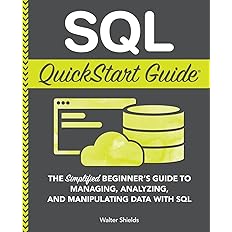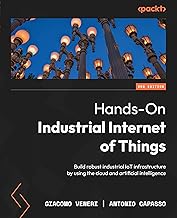The rapid evolution of the global industrial landscape is truly something to behold. The products and solutions that keep industries running are the lifeblood of innovation and progress globally.
Other articles similar to this one can be found at: https://globalaffmktg.com/
The Fourth Industrial Revolution: A New Marketing Frontier
We’re in the midst of a transformative era often called Industry 4.0. This shift fundamentally alters how industries operate, creating massive opportunities for those who can provide and effectively market the right solutions.
Industry 4.0 centers on connectivity and intelligence. Smart factories where machines talk, predictive maintenance that prevents costly breakdowns, and data analytics that generate actionable insights are now essential.
For marketers, this means showcasing how products enable true business transformation.
Consider industrial IoT devices. This year, 2025, these technologies are projected to reach a staggering 14.2 billion units deployed worldwide.
This represents a seismic shift in how industries monitor and optimize their operations.
As marketers, we must help potential clients envision the tangible benefits: improved efficiency, significant cost savings, and enhanced competitive advantages.
However, increased connectivity brings new vulnerabilities. The global industrial cybersecurity market is expected to reach $25.6 billion by early 2025.
This growing concern creates an opportunity to position security solutions as critical safeguards in an increasingly connected industrial ecosystem.
The reality is the 4th Industrial Revolution is upon us and this resource spells it out:

Note: As an Amazon Associate, I may earn a commission from qualifying purchases.
Sustainability: The Industrial Imperative
Sustainability has become a non-negotiable priority for industries worldwide. The market for green industrial products is booming, encompassing energy-efficient machinery, waste management solutions, and industrial water treatment systems.
Effective marketing in this space requires a dual focus. While environmental benefits are crucial, equally important is demonstrating how sustainability drives profitability.
A well-crafted strategy highlights both the ecological and economic advantages of these products.
When marketing industrial water treatment solutions, for example, emphasize water conservation alongside reduced operational costs, improved regulatory compliance, and enhanced corporate reputation. Paint a vivid picture of a future where sustainability and profitability are inextricably linked.
The Digital Twin Revolution
Digital twins – virtual replicas of physical assets, processes, or systems – are altering industrial operations. These technologies enable unprecedented levels of maintenance optimization and innovation.
Marketing digital twin solutions effectively requires a focus on tangible outcomes. While the technology itself is complex, your audience needs to grasp it’s practical potential.
Share success stories of how digital twins have transformed operations for other companies.
Highlight concrete examples of reduced downtime, optimized processes, and accelerated innovation cycles.
Bridging the Industrial Skills Gap
The industrial sector faces a significant challenge: a shortage of skilled labor, particularly in areas related to emerging technologies. This gap creates opportunities for companies marketing training solutions, augmented reality systems for on-the-job guidance, and other products that enhance workforce capabilities.
When promoting these solutions, emphasize long-term benefits. Showcase how investing in workforce development creates an adaptable, tech-savvy team ready to tackle the challenges of Industry 4.0.
Illustrate how these solutions improve employee retention, boost productivity, and foster a culture of innovation.
The Art of Industrial Storytelling
In a world of complex technologies and abstract concepts, the ability to craft compelling narratives sets exceptional marketers apart. Industrial storytelling involves translating intricate ideas into relatable, actionable concepts.
It’s about demonstrating how your product or solution becomes an integral part of your client’s success story.
Rather than simply listing features of an industrial robotics solution, share a narrative of transformation. Describe how similar companies have boosted productivity, improved worker safety, and driven growth through implementation.
Use data to support your claims, but weave those numbers into a narrative that resonates with your audience’s challenges and aspirations.
Position your company as more than a vendor – become a trusted partner in compliance. Demonstrate how your solutions help companies stay ahead of regulatory changes, avoid costly penalties, and maintain their operational licenses.
This approach is particularly crucial in areas like environmental compliance, worker safety, and data protection.
By showcasing a deep understanding of the regulatory challenges your clients face, you position your products as essential tools for risk management and business continuity. The ability to offer customized solutions becomes a major differentiator in this context.
If you need AI Tools such as content, photos and images to project your media efforts, try this resource: https://galaxy.ai/?ref=gary
The Power of Customization
Customization capabilities can set your industrial products apart in a crowded market. The key to effectively marketing customization comes from showcasing your process as opposed to getting lost in endless possibilities.
Highlight your ability to understand unique challenges, collaborate closely with clients, and deliver tailored solutions. Use case studies to illustrate how you’ve solved specific problems for other clients, but always tie it back to your systematic approach to customization.
Remember, you’re marketing more than just a product – you’re selling your expertise and adaptability to each client’s unique needs. This approach positions you as a true partner in your clients’ success, as opposed to just another vendor.
Embracing the Circular Economy
The concept of the circular economy is reshaping industrial thinking. This approach, focused on minimizing waste and maximizing resource utilization, is gaining significant traction across industries.
When marketing products aligned with circular economy principles, emphasize the full lifecycle impact. Demonstrate how your solutions help companies reduce waste, recover valuable materials, and create closed-loop systems.
However, don’t limit your focus to environmental benefits alone.
Highlight the economic advantages, from reduced raw material costs to new revenue streams generated from recovered resources.
The circular economy represents more than just a sustainability initiative – it’s a basic shift in how industries approach production and resource management. Position your products as key enablers of this transformative approach, helping companies stay ahead of the curve in both environmental responsibility and economic efficiency.
Leveraging Data Analytics for Industrial Insights
The industrial sector generates massive amounts of data, but the true value comes from transforming that data into actionable insights. Marketing data analytics solutions for industry requires a focus on practical applications and tangible outcomes.
Showcase how your analytics tools can uncover hidden inefficiencies, predict maintenance needs, and optimize supply chains. Use real-world examples to illustrate how data-driven decision-making has led to significant cost savings, improved product quality, and enhanced operational efficiency for other clients.
Emphasize the user-friendliness of your solutions. Many industrial decision-makers may feel intimidated by complex data analysis.
Highlight how your tools make advanced analytics accessible to users across different levels of technical expertise. https://amzn.to/3ZQ1EIC

The Rise of Industrial Automation
Automation continues to transform industrial processes, from manufacturing to logistics. Marketing automation solutions effectively requires a delicate balance – showcasing the power of the technology while addressing concerns about workforce impact.
Focus on how automation enhances human capabilities as opposed to replacing them. Illustrate how automated systems free up workers to focus on higher-value tasks, improving job satisfaction and productivity.
Share case studies of companies that have successfully implemented automation, highlighting improvements in efficiency, product quality, and worker safety.
Address common misconceptions about automation head-on. Demonstrate how modern automation solutions are flexible and scalable, suitable for businesses of various sizes and industries.
AI tools are absolutely necessary for marketing successfully. Try this resource to assist you: https://galaxy.ai/?ref=gary
Additive Manufacturing: Beyond Prototyping
3D printing, or additive manufacturing, has evolved far beyond it’s initial applications in prototyping. Marketing advanced additive manufacturing solutions requires educating potential clients on the full spectrum of possibilities this technology offers.
Highlight how additive manufacturing enables the production of complex geometries impossible with traditional methods. Showcase applications in industries like aerospace, where 3D-printed parts reduce weight and improve fuel efficiency.
Emphasize the technology’s ability to facilitate mass customization, allowing companies to produce tailored products at scale.
Address common concerns about material properties and production speed. Use comparative data to show how modern additive manufacturing can match or exceed the quality and efficiency of traditional methods in many applications.
Industrial Energy Management
With energy costs and environmental regulations on the rise, industrial energy management solutions are in high demand. Marketing these products effectively requires a focus on both immediate cost savings and long-term sustainability benefits.
Showcase how your energy management systems provide real-time monitoring and optimization of energy consumption. Use case studies to illustrate significant reductions in energy costs achieved by similar companies.
Highlight features like predictive maintenance that prevent energy waste from equipment inefficiencies.
Emphasize how your solutions help companies meet and exceed regulatory requirements for energy efficiency and emissions reduction. Position your products as essential tools for companies looking to achieve their sustainability goals while improving their bottom line.
The Industrial Internet of Things (IIoT)
The Industrial Internet of Things (IIoT) is altering how industries watch, maintain, and optimize their operations. Marketing IIoT solutions effectively requires demystifying the technology and focusing on practical applications.
Illustrate how IIoT enables predictive maintenance, reducing downtime and extending equipment life. Showcase how real-time data from connected devices can optimize production processes, improve quality control, and enhance supply chain visibility.
Address security concerns head-on, highlighting the robust cybersecurity measures integrated into your IIoT solutions. Use case studies to demonstrate successful IIoT implementations across various industries, emphasizing tangible improvements in efficiency, cost savings, and decision-making capabilities.
I encourage you to visit this site as it details many insights into the IIoT >>> https://amzn.to/4aalUtj

Note: As an Amazon Associate, I may earn a commission from qualifying purchases.
Augmented Reality in Industrial Applications
Augmented Reality (AR) is finding increasing applications in industrial settings, from maintenance and repair to training and quality control. Marketing AR solutions for industry requires showcasing the technology’s practical benefits and ease of implementation.
Highlight how AR can provide real-time, hands-free guidance for complex maintenance procedures, reducing errors and improving efficiency. Showcase applications in training, where AR can create immersive, interactive learning experiences that accelerate skill development.
Use concrete examples to illustrate how AR improves accuracy in assembly processes or enhances quality control procedures. Address concerns about the learning curve by emphasizing the intuitive nature of well-designed AR interfaces.
Industrial Robotics: Collaborative and Autonomous
The field of industrial robotics is evolving rapidly, with a growing emphasis on collaborative robots (cobots) and autonomous systems. Marketing these advanced robotics solutions requires addressing both the technological capabilities and the human factors involved in their implementation.
Showcase how cobots can work safely alongside human workers, enhancing productivity without replacing human jobs. Highlight the flexibility of modern robotics systems, emphasizing their ability to be quickly reprogrammed for different tasks.
For autonomous robotics, focus on applications in areas like warehouse management and material handling. Use case studies to demonstrate how these systems improve efficiency, reduce errors, and enhance worker safety by taking on repetitive or hazardous tasks.
Address concerns about complexity by highlighting user-friendly programming interfaces and the availability of training and support services.
Blockchain in Industrial Supply Chains
Blockchain technology is gaining traction in industrial applications, particularly in supply chain management. Marketing blockchain solutions for industry requires demystifying the technology and focusing on it’s practical benefits.
Highlight how blockchain can enhance transparency and traceability throughout the supply chain, from raw material sourcing to end-product delivery. Showcase applications in quality control, where blockchain can provide an immutable record of product testing and certification.
Emphasize how blockchain can improve efficiency in areas like procurement and payments, reducing paperwork and accelerating transactions. Use case studies to illustrate how blockchain has helped companies reduce fraud, improve compliance, and build trust with partners and customers.
Industrial Cybersecurity: Protecting Critical Infrastructure
As industries become increasingly digitized, the importance of robust cybersecurity measures cannot be overstated. Marketing industrial cybersecurity solutions requires a balance of highlighting potential threats and showcasing protective capabilities.
Illustrate the evolving nature of cyber threats targeting industrial systems, from ransomware attacks to state-sponsored espionage. Use real-world examples (without naming victims) to demonstrate the potential consequences of security breaches in industrial settings.
Showcase how your cybersecurity solutions provide comprehensive protection, from network segmentation to threat detection and response. Highlight features like continuous monitoring and automatic updates that keep defenses current against emerging threats.
Emphasize the importance of a holistic approach to cybersecurity, encompassing technology, processes, and people. Showcase your training and support services that help clients build a culture of security awareness.
Here’s a great data research firm: https://www.affiliateprogramdb.com/research-service/?ref=vrvzptls
Put in Coupon Code dataxyz for a 10% discount
Frequently Asked Questions
What is Industry 4.0?
Industry 4.0 refers to the fourth industrial revolution, characterized by the integration of digital technologies into industrial processes. It encompasses technologies like the Internet of Things (IoT), artificial intelligence, and advanced robotics to create smart, interconnected manufacturing systems.
How does industrial IoT improve efficiency?
Industrial IoT improves efficiency by enabling real-time monitoring and data collection from machines and processes. This data can be analyzed to optimize operations, predict maintenance needs, and reduce downtime, leading to significant improvements in overall efficiency and productivity.
What are digital twins in industrial applications?
Digital twins are virtual replicas of physical assets, processes, or systems. In industrial applications, they allow for real-time monitoring, simulation, and optimization of operations without disrupting physical processes.
This technology enables predictive maintenance, process optimization, and faster innovation cycles.
How can industries benefit from the circular economy?
Industries can benefit from the circular economy by reducing waste, lowering raw material costs, and creating new revenue streams from recovered resources. This approach improves sustainability but can also lead to significant cost savings and improved operational efficiency.
What role does augmented reality play in industrial training?
Augmented reality enhances industrial training by providing immersive, interactive learning experiences. It allows trainees to practice complex procedures in a safe, virtual environment, accelerating skill development and reducing the risk of errors in real-world applications.
How does blockchain improve industrial supply chains?
Blockchain improves industrial supply chains by enhancing transparency, traceability, and trust. It creates an immutable record of transactions and product movements, reducing fraud, improving quality control, and streamlining processes like procurement and payments.
What are the key benefits of industrial robotics?
Industrial robotics offer benefits such as increased productivity, improved product quality, enhanced worker safety, and the ability to operate in hazardous environments. Modern robotics, especially collaborative robots, can work alongside humans, augmenting their capabilities as opposed to replacing them.
How can industries address the skills gap in emerging technologies?
Industries can address the skills gap by investing in comprehensive training programs, leveraging technologies like augmented reality for on-the-job guidance, and partnering with educational institutions to develop relevant curricula. Continuous learning and upskilling programs are crucial for keeping the workforce adaptable to technological changes.
What are the main challenges in implementing IIoT solutions?
The main challenges in implementing IIoT solutions include ensuring cybersecurity, integrating with existing systems, managing large volumes of data, and addressing privacy concerns. Additionally, there may be resistance to change within organizations and a need for significant upfront investment.
How does predictive maintenance work in industrial settings?
Predictive maintenance uses data from sensors and IoT devices to monitor equipment performance and predict when maintenance will be needed. By analyzing patterns and trends in the data, it allows industries to schedule maintenance before failures occur, reducing downtime and extending equipment life.
Key Takeaways
- Industry 4.0 technologies like IoT and AI are reshaping industrial operations, creating new marketing opportunities.
- Sustainability has become a critical factor in industrial product development and marketing.
- Digital twins offer powerful benefits for optimization and innovation in industrial processes.
- The industrial skills gap creates opportunities for marketing training and augmented reality solutions.
- Effective industrial marketing requires strong storytelling skills to make complex concepts relatable.
- Regulatory compliance is a key concern for industries and a significant marketing opportunity.
- Customization capabilities can be a major differentiator in industrial product marketing.
- The circular economy is reshaping industrial thinking and creating new marketing opportunities.
- Data analytics solutions are crucial for transforming industrial data into actionable insights.
- Industrial automation and robotics continue to evolve, requiring nuanced marketing approaches.
- Additive manufacturing has moved beyond prototyping, offering new possibilities for production.
- Energy management solutions are in high demand due to rising costs and environmental regulations.
- The Industrial Internet of Things (IIoT) is altering industrial monitoring and optimization.
- Augmented reality is finding increasing applications in industrial training and maintenance.
- Blockchain technology is enhancing transparency and efficiency in industrial supply chains.
- Robust cybersecurity measures are essential for protecting increasingly digitized industrial systems.
- AI tools are absolutely necessary for marketing successfully. Try this resource to assist you: https://galaxy.ai/?ref=gary
- * Please be sure to SAVE this website in your “Favorites” file.
Note: As an Amazon Associate, I may earn a commission from qualifying purchases. This post contains links. If you click on these links and make a purchase, I may earn a commission at no additional cost to you. Rest assured, I only recommend products or services I believe will add value to my readers.
Articles similar to this one can be found at: https://globalaffmktg.com/
